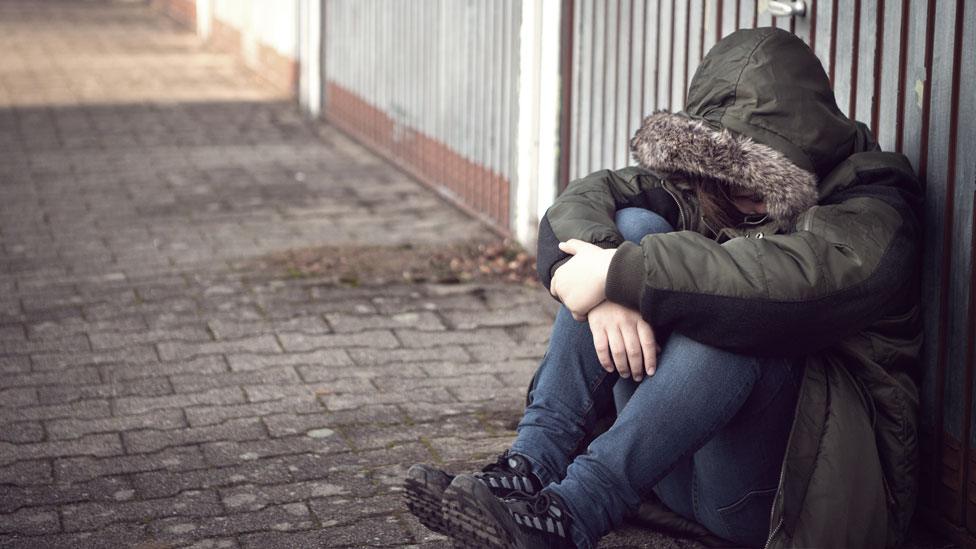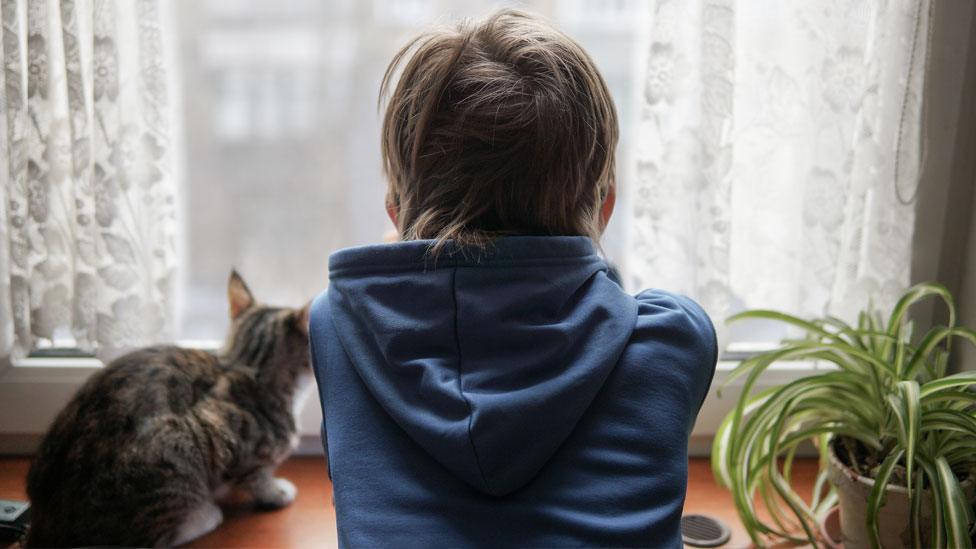Vulnerable teen given tent to live in, watchdog report finds
- Published

A teenager given a tent to live in, and a child denied the chance to say "goodbye" to his dying mother feature in a report revealing heart-breaking decisions about children in care.
The watchdog report also includes a case of siblings abruptly removed from a foster family wanting to adopt them.
Another details how a fostered girl returned home to find her bags packed and a taxi to a hostel waiting for her.
The cases are revealed by the Local Government and Social Care Ombudsman.
Ombudsman Michael King said even one case like this was one too many, and urged all councils, when making decisions about children in their care, to ask: "Would this decision be good enough for my child?"
None of the councils in England are named in the report.
'Saddening'
Cathy Ashley, of the Family Rights Group, said such poor decisions could be "so damaging at a critical moment in the lives of children in care or at risk of care".
With the number of children in care at its highest for 35 years, and the pandemic increasing the pressure and strain on families and on children's services, this was very concerning, she said.
The report - Careless: Helping to improve council services to children in care - looks at the journey of children coming into care, creating stability, contact arrangements and eventually leaving care.

It uses a litany of real life case studies. whose names have been changed to protect their identities, to show where things have gone wrong.
One case featured was Albert who was 11 and living with foster parents, when he was told his birth mother had died.
Four years later, during a review meeting, Albert learned his mother had been seriously ill and on life support.
'Insensitive'
This was switched off without him being told, thus denying him the opportunity to visit her before she died.
He also complained about the use of insensitive language and the way in which the information was shared with him. The council upheld the complaint.
The ombudsman said young children needed to be able to understand the decisions being made by their corporate parents.
The case of Billy, a vulnerable and troubled 17-year-old who was thrown out of his home by his father, is also highlighted
The unnamed council offered him accommodation, but far from where he usually lived. Then rather than consider whether it should accommodate Billy nearer, the council gave him a tent to live in, followed by a static caravan.
'Lying to children'
Billy's mental and physical health seriously deteriorated during his ordeal, and shortly afterwards, he was detained under the Mental Health Act 1983 where he remained for nearly a year, the ombudsman said.
It added: "The council had seriously failed Billy by not offering him suitable accommodation under section 20 of the Children Act 1989."
The council awarded Billy £2,500 for the distress they caused and for placing him at risk.
In another case, Tim and Nikki fostered two particularly vulnerable children when their birth parents were no longer able to look after them.
After two years, the couple told the council they wished to adopt the children.
But the council questioned the amount of money the couple requested to help them support these needy children, and they were also concerned about the children's academic progress.
'Children's voices'
The council decided the children should be removed from Tim and Nikki's care without notice. There was no statutory meeting or evidence to support the council's claim about the foster parents.
Social workers then collected the children from school and told them Tim and Nikki had gone on holiday.
The ombudsman said: "In this case, we used our powers to also consider the injustice the children suffered. We found the children would have been harmed by the sudden removal from the home.
"While, happily, they were found another foster placement which became long term, the way the council acted denied them the chance to voice their own wishes on the matter," it said.
Ms Ashley added: "Putting the voices and experiences of children and families at the centre is key to getting this right."
President of the Association of Directors of Children's Services Jenny Coles said there had been a 34% increase in the number of children in care over the past decade, and that the availability of placements for children in care was a key issue for the majority of councils.
He said; "It is important that local authorities learn from their successes and also where things have gone wrong.
"The case studies in the report provide an opportunity for the sector to learn and subsequently improve practice."